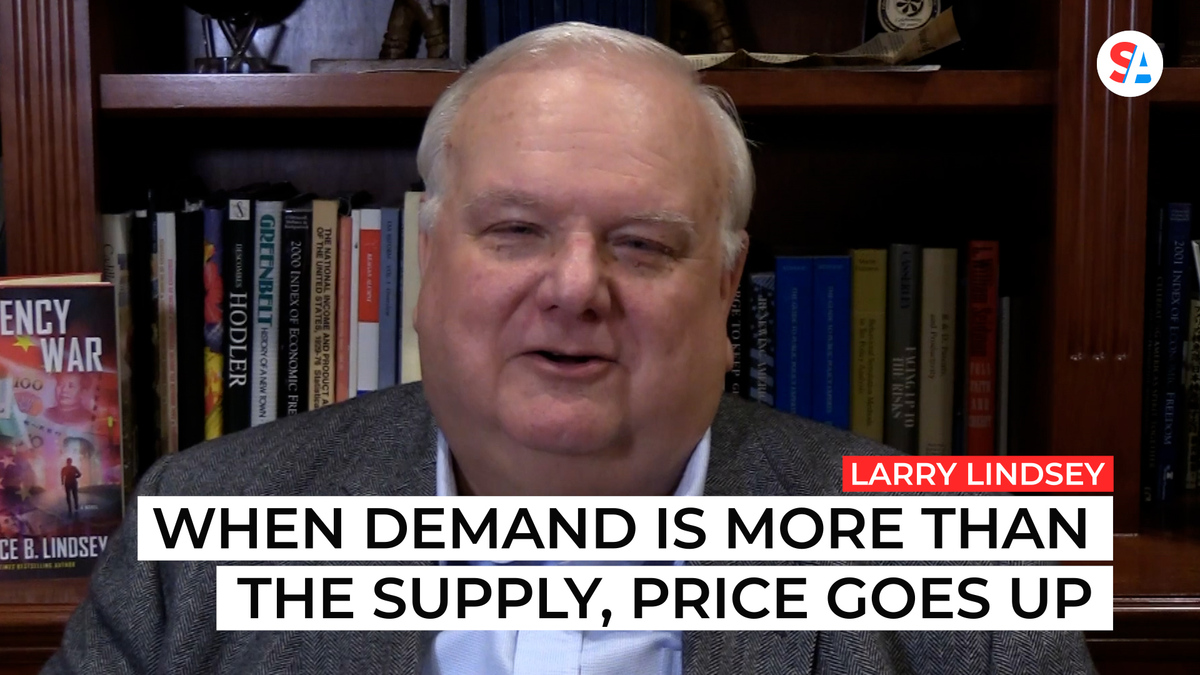
Commentary
-
Our commentary partners will help you reach your own conclusions on complex topics.
It’s that time of year, folks, the time when people like me are all asked to give their projection for what’s going to happen in ‘23. Well, we’re limited to just one and supposed to be a little bit unusual, so my prediction is going to be that we’re going to see long interest rates, those going, say 10 years or more, going up quite sharply during 2023. That’s not the conventional wisdom and let me explain.
We know that the Fed just raised short-term rates. This is the amount it costs to borrow overnight, from four and a half percent to 5%. Despite that, the bond market is telling us that you can lend Uncle Sam for 10 years or as long as 30 years, and just get three and a half percent on your money. So let me start off with a basic question. Would you lend money to Uncle Sam for 30 years for just three and a half percent?
When it’s phrased that way, very few people say yes, but that’s what the market is doing. First question you have to ask yourself, is what will the money be worth when you get paid back, say, 30 years from now? Well, the bond market says that the average inflation rate for the next 30 years will be just 2.3%. Now the Fed with all of its efforts, doesn’t think we’re gonna get to that level, even until 2025. But what’s going to happen in the, say, 27 years after that?
Will we have no more emergencies, no wars, no more pandemics? It’s those emergencies that fuel the printing of money as they did this time. You might remember that when the pandemic struck, we viewed it a little bit as war. And we borrowed significant amounts of money to inject them into the economy. And the Fed printed the money to cover that. The injection of 2020 turned out to be roughly balanced; there was no inflation. But when we piled on with another such effort in 2021, that is spending money and printing it to cover the cost, inflation started to take off.
So first question, if we have no more emergencies, fine. Although over 30 years, that seems unlikely. The second question would be, if we have one of those emergencies, are we not going to do what we’ve always done in the past, which is to cover it by printing money and have the Fed buy those bonds? I think that’s unlikely.
The second part is, how much do you get above inflation. This is so-called real rate. The bond market is telling us that will give you a return of 1.2 percent. Now, that’s not that unusual for lending to the government, which is supposed to be a safe haven. But if you look closely at supply and demand for funds, that is what people want to borrow versus what people want to lend, it doesn’t look so good. Let’s start on the supply side, i.e. people who want to lend. Total savings in the U.S. private sector is composed of two parts. One, corporations. How much money do firms retain in terms of earnings, after all our costs and after they’ve covered their taxes? Well, in the last four quarters that managed to get all the way up to $775 billion.
Savings in the household sector were $800 billion, but foreigners lent us a trillion extra dollars during that period. In other words, the U.S. is relying on the kindness of strangers in order to cover its borrowing. Forty percent of all of our borrowing wasn’t generated domestically. It was lent to us by foreign entities. Will they be willing to keep that up for 30 years?
There is no evidence in history that something like that would ever occur. And on top of that, the Fed is selling off $1.1 trillion of bonds every year. Well, that’s all going to be bought by someone in the private sector, i.e. corporates or households or foreigners. So the net supply of funds is really going to be quite constrained going forward.
How about demand? Demand doesn’t look so good, either. The Congressional Budget Office, for example, thinks that the federal deficit will go from 4% of GDP currently, up to 11% of GDP by 2030. There’s just no money available to cover that kind of borrowing. And on top of that, we now have a very ambitious environmental program to get to net-zero carbon emissions by 2050.
Well, the International Energy Agency says that globally to do that, we’ll have to take energy investment from two and a half percent of global GDP to four and a half percent of global GDP each and every year going forward.
Now, that means globally, an extra $2 trillion every single year to invest in global energy investments. Oh by the way, we are going to be, I assume, building new homes and building new factories, which also requires funds. There’s no way they’re going to be generated with the government in there to borrow so much of it, and so little domestic savings. Well, we all know what happens. Demand for funds is more than the supply of funds. And when demand is more than supply, the price goes up. And the price of money is the interest rate.
Expect the markets to realize that in 2023 long term interest rates are going much higher.
-
Election 2024 will boil down to the Great Lakes states
Pollsters and pundits have been engaged in a long debate about how Biden or Trump might win the 2024 election, with much of their focus spent on the “swing state” electoral battlegrounds. While the winners of Alabama or California may be obvious, for instance, who wins Pennsylvania is a more difficult question. Watch the above…
-
Why the Fed should consider Theory of Reflexivity when fixing policy
The Theory of Reflexivity, often used in the context of economics and financial markets, implies that investors don’t base their decisions on reality but on their perceptions of reality. This creates a feedback loop where investors’ perceptions influence economic fundamentals, which in turn alter investor perceptions. Watch the above video as Straight Arrow News contributor…
-
Federal Reserve surpassed its own wildest expectations
On May 14, the U.S. Bureau of Labor Statistics released the most current producer price index (PPI) report, which showed an increase of 0.5% month-over-month in April. After the report’s release, U.S. Federal Reserve chairman Jerome “Jay” Powell said that while he believes the current policy rate is restrictive by many measures, the Fed needs…
-
Polls give slight advantage to Trump in Electoral College
With the U.S. general election only six months away, leading candidates President Joe Biden and former President Donald Trump appear to be engaged in a very close contest. In their 2020 race, the winner of the Electoral College was ultimately determined by a relative handful of voters in just a few swing states, even though…
-
College sports is big money but not everyone benefits
March Madness has wrapped up and Caitlin Clark has emerged as a household name as well as a wealthy student athlete. Earning over $3 million throughout her college career, her success stands in stark contrast to the previous notion that collegiate athletes shouldn’t earn anything beyond their scholarship. Straight Arrow News contributor Larry Lindsey examines…
Latest Opinions
-
 U.S. Department of Defense
U.S. Department of Defense
Congress still trying to figure out how to reduce wasteful military spending
-
 DVIDS
DVIDS
US Navy, Air Force making waves with new weapons at RIMPAC
-
 Getty Images
Getty Images
Israeli PM Netanyahu meets with Trump at Mar-a-Lago
-
 Getty Images
Getty Images
Growing US nuclear power resurgence reaches the nation’s heartland
-
 Getty Images
Getty Images
Beer from the sun, other solar thermal projects get government funding
Popular Opinions
-
In addition to the facts, we believe it’s vital to hear perspectives from all sides of the political spectrum.


